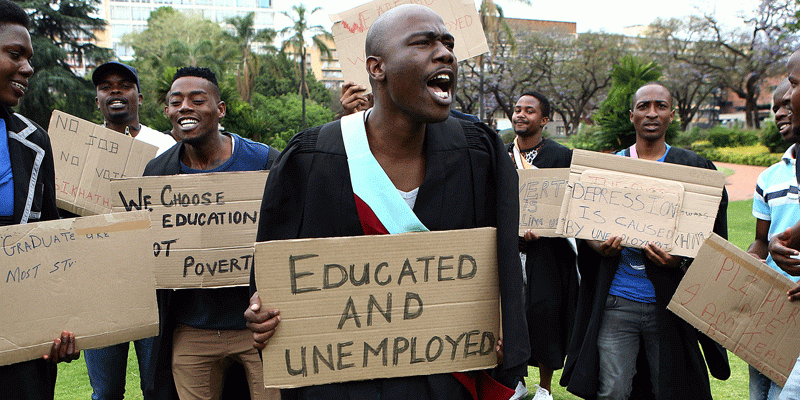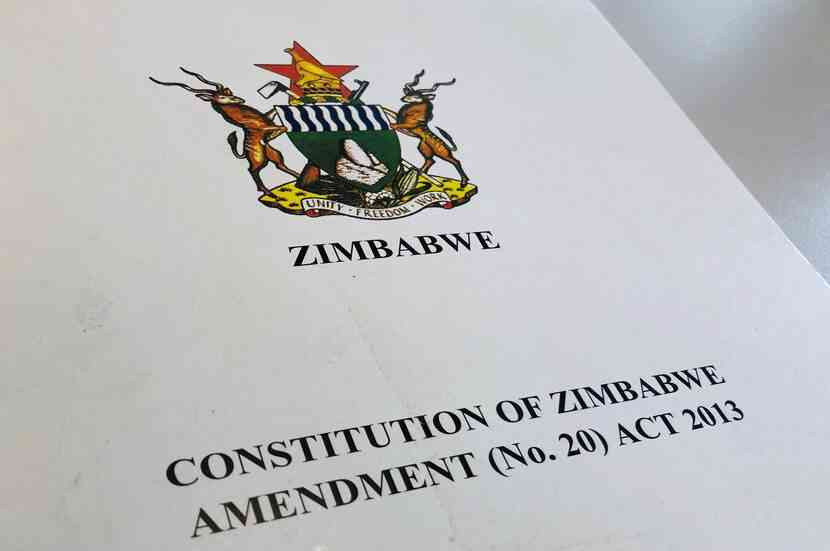
The youth employment issue is on the political agenda of many countries in Zimbabwe and the broader southern Africa region.
It is the subject of political debate and discussions on socioeconomic and sustainable development.
There is a worrying rise of unemployment among young people in the region and many are being forced to join the informal economy because opportunities in the formal job market have vanished.
In response, several countries, including Zimbabwe, have taken measures to address informality among youth.
In addition to the strategies that directly address youth employment, many countries have developed and improved activities to eradicate informal employment, which range from increasing productivity and facilitating formalisation to guaranteeing social benefits to workers regardless of their employment status.
This article provides a glimpse of the young face of informal employment in Zimbabwe, the challenges associated with the sector and how some of them can be addressed both at micro and macro levels.
In keeping with the priorities set by the countries, the International Labour Organisation (ILO) tripartite discussions have prioritised informality and the situation of youth in the labour market.
While the fundamental conventions are applicable to the informal economy and young workers, there are also specific instruments on both issues.
- ZCTU and ILO turn blind eye to pensioners’ plight
- Trade unions bemoan working conditions
- Zim govt railroads anti-labour laws: ITUC
- Letters: Zim needs wisdom more than money
Keep Reading
In recent years, International Labour Conferences (ILC) and the instruments resulting from ILC exchange and discussion processes have prioritised these issues, with the participation of representatives of governments, workers and employers.
Several studies indicate that labour informality is more common in some types of employment status, jobs, sectors and sizes of enterprises.
Likewise, these characteristics, together with those typical of the profile of new workers –who lack work experience and initial productivity–, make youth a particularly vulnerable group (ILO 2014c, ILO 2013a, CEDLAS 2014).
Disorganisation in informal economy
Despite the informal sector players constituting a significant urban population, their issues remain peripheral, mainly due to the disorganisation.
This has largely impeded meaningful engagements with solution holders and the public remain disinterested in their issues and have thus failed to get public sympathy critical to trigger policy change.
As a result of lack of public sympathy, policy makers are unresponsive as the constituency does not pose a threat to political power and hence policies (written or otherwise) remain repressive to the sector, providing opportunities for corruption and abuse of the law by enforcement agents for personal benefits.
The lack of the organization stems from a dearth of unionism by the informal sector players themselves, and partly due to lack of leadership skills and lack of understanding of the constitution and statutory instruments governing the enterprise.
Involvement of youth in informal sector
The informal sector literature has shown that youth constitute the majority of the workers in the informal sector in almost all the developing countries.
According to research findings by UNRISID (2010) because of the large proportion of the youth in the informal sector there is often a tendency for them to be involved in erratic and often corrupt segments of the sector.
In Zimbabwe, the percentages of the youth representation in the informal sector have been attributed to a variety of factors.
One of the major factors is its easy accessibility and ready availability for youth participation in the sector.
Research by Carr and Chen (2001) demonstrated that the connection between employment in the informal sector and being poor is often stronger amongst the youth than it is for the older generation.
According to the same findings the older generation’s participating in the informal sector tend to be over represented at the top segments of the sector while youth are at the bottom tiers where they specialise in trading perishable items.
This paper posits that, youth dynamics in the informal sector points to intricacies involved in the context of urban and informal sector development.
Challenges facing youth working in informal economy
- Exclusion from policy processes and a lack of appropriate legal and policy frameworks Despite the fact that the youths are the majority in the informal economy, they are often excluded from policy processes and this exclusion manifests in different forms.
Participation mechanisms and processes for youth in the sector are often inappropriate, employing economic jargon or disempowering language with youth being viewed in a negative light.
This exclusion results in the formulation of top-down policies that do not address the specific concerns of the youth.
For example, most policies governing the financial sector are not friendly to the informal sector players.
To open bank accounts, banks require too much documentation which informal sector players may fail to produce, even if they might have the money to bank.
The requirements are mostly a result of policy pronouncements, which makes policy a hindrance to access to bank services by the informal sector players
To make matters worse, many countries, especially in the Sadc region, do not have appropriate legal and policy frameworks to protect and nurture the informal economy and to protect youth as is the case in the formal sector.
Where there is some form of legal framework, such frameworks fail to address the needs of the youth and the power dynamics at play in the informal economy (Mwaba, 2010; Steyn, 2011).
The lack of appropriate legal frameworks exposes youth to all manner of abuses, particularly from law enforcement agencies and officials who show little or no concern for the very laws they are supposed to uphold.
This is expressed in various ways including police brutality, corruption and double taxation (ESSET, 2010; Chetty, 2012).
Most Local authorities in Zimbabwe continue to use old colonial laws to manage the informal economy.
These laws promote perceptions that informal economy workers are illegal and a nuisance.
Further, these laws allow city authorities to ‘forcibly remove any nuisance, obstruction or encroachment on streets or any public place’.
In November 2023, the Health minister openly encouraged local authorities to evict the so-called illegal vendors form the central business district of Harare accusing them of spreading cholera.
- Unfair competition
Youth working in the informal sector face multiple forms of competition including from the older players and large-scale companies.
Youth informal workers often experience stiff competition from big economic players.
The general low level of education and business literacy among youth contributes to this significantly.
It also means they cannot have the same level of access to finance as the older players.
Most youth use their own sources of income, which are frequently meagre, to raise capital for their business.
This may be supplemented through borrowing from their neighbours and families as well as their own savings.
The requirements for bank credit tend to be cumbersome and the youth are consequently side-lined.
The youth are also sometimes categorised as a high-risk group for credit.
The lack of assets and capital required for collateral limit their potential to grow their business (Mwaba, 2010).
Sadly, credit solutions in the form of microfinance are no better. Like commercial banks, they are geared towards unfettered profits and in a position to exploit others.
In the process, they trap the youth into on-going cycles of debt.
Promoted by the architects of the neoliberal agenda, such models only serve the interests of capitalism at the expense of youth in the informal economy.
*Wadzai is an informal economy expert and Vendors Initiative for Social and Economic Transformation executive director.
These weekly articles published are coordinated by Lovemore Kadenge, an independent consultant, managing director of Zawale Consultants (Private) Limited, past president of the Zimbabwe Economics Society and past president of the Chartered Governance & Accountancy Institute in Zimbabwe . Email- [email protected] or Mobile No. +263 772 382 852











